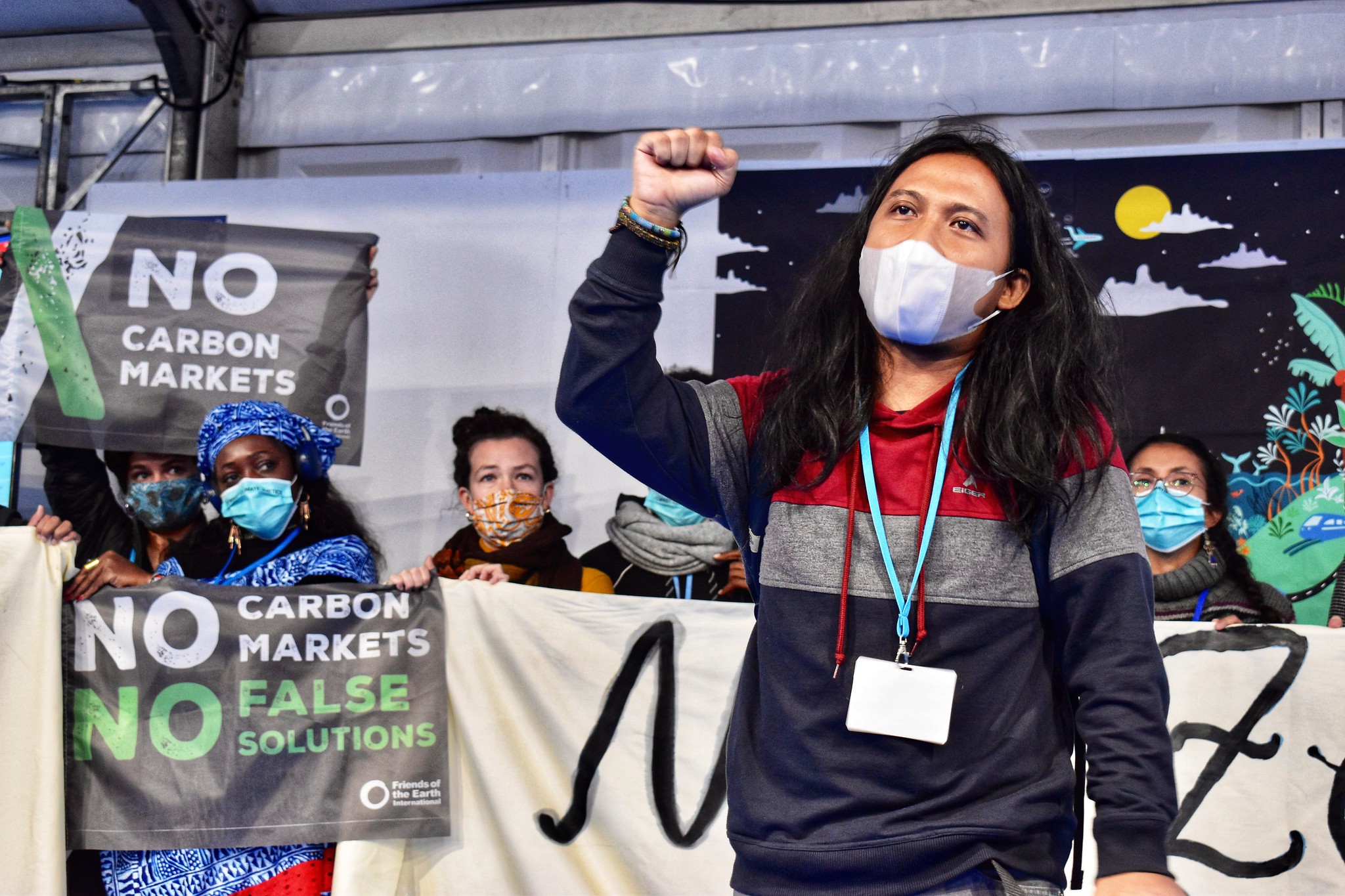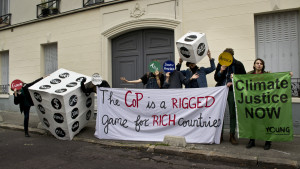
Halfway through, far from halfway there
At the halfway point of the Paris climate talks very little progress has been made on any of the key issues up for negotiation; that is, issues fundamental to the survival of the human race. Parties to the UN Climate Convention have spent not just last week but the last 4 years negotiating under what’s called the Advanced Durban Platform, yet they seem just as entrenched in their positions today as ever.
A chaotic first week saw negotiations taking place across multiple bi-laterals, ‘spin-off’ groups and so called ‘informal-informals’, to the great detriment of many developing country parties whose delegations are simply too small to cover all the important meetings at the same time.
As Civil Society observers, we were were shut out of all but the main forum where parties reported back on progress made in the different negotiation strands. The Like-Minded Developing Countries bloc, which includes Malaysia, China, India, Cuba, Sudan amongst others, made repeated pleas for all of the negotiating rooms to be open – even if the rooms weren’t big enough, surely a video link could be arranged? We need civil society they said – they are a vital source of expertise for smaller delegations. The eventual answer, so slow in coming it became a moot point: sorry, we don’t have the technical capacity.
Hard to believe, at a major UN conference held in a rich Western nation in the 21st century that’s been years in the planning. You’d be forgiven for thinking certain parties don’t want civil society to witness what’s actually going on behind closed doors. What we did hear in the forums we were allowed to sit in on were accusations of ‘bad faith negotiations’ – no small matter in the world of international diplomacy – from the G77 & China bloc (which actually includes around 135 countries) about the manner in which certain major developed countries were behaving – going back on previous agreements reached at previous summits and refusing to discuss bridging proposals put on the table by developing countries to try and reach compromise.

(c) Koen Glotzbach
As the spectre of the failed Copenhagen Summit loomed large, the French hosts narrowly avoided the process derailing by promising that everything would still be on the table in week two when Environment Ministers arrive to start the hard political bargaining. That’s why the document that was handed over to Laurent Fabius, the French Foreign Minister and COP President on Saturday was both long and full of brackets signifying undecided text.
The main battle, from which all the other fights on emissions cuts, finance, adaptation, loss and damage stem, is the issue of differentiation between developed and developing countries: who is most responsible for the problem of climate change, who has the capacity to respond to it. The world has changed, say countries in the wealthy west, with no hint of insincerity; the binary division of rich and poor no longer holds – we need a new ‘dynamic differentiation’ that can adapt to the changing circumstances of developing countries as they move out of poverty. However, that’s exactly what the Convention agreed 20 years ago, and ratified by the 195 countries sitting in Le Bourget does. Quoting the UN’s own inequality figures, Malaysia’s lead negotiator Prof Gurdial Singh Nijar reminded the COP plenary on Saturday that when it comes to rich and poor, frankly, the world has not changed that much in 20 years at all.
As one by one, spokespeople for the various negotiating blocs expressed their desire to continue working together in week two and their trust in the French leadership of the COP, Malaysia ended its powerful intervention with both a stark warning and an appeal: navigate away from the dangerous zones of differentiation and historical responsibility – these fundamental precepts of our Convention should not be up for negotiation.
Mary Church is Head of Campaigns at Friends of the Earth Scotland, and a member of the Friends of the Earth International and Stop Climate Chaos Scotland delegations at COP21 in Paris. Twitter: @mmachch
